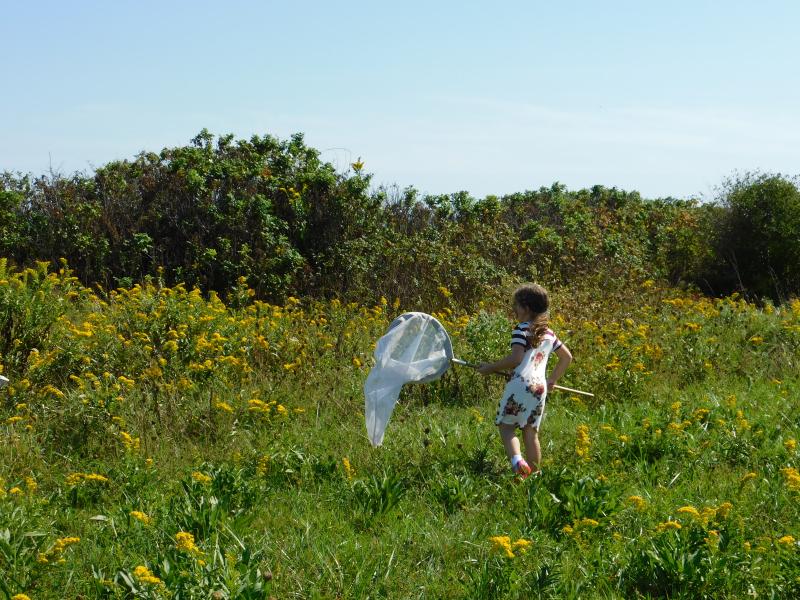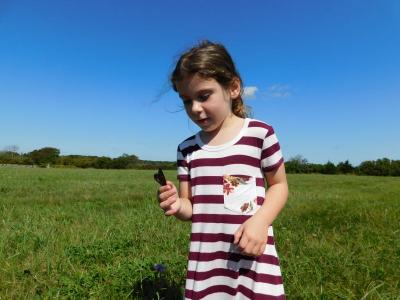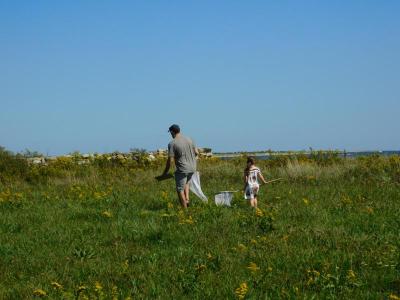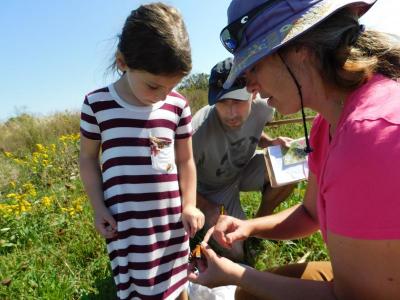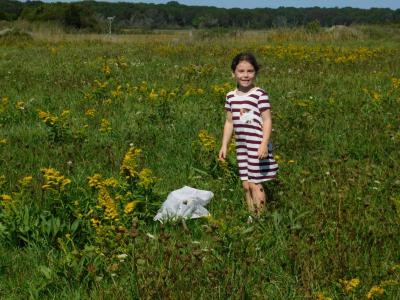Catching butterflies to help scientists at Allens Pond
“I got one!” Amelia Cabral, 5, exclaimed as she pointed at her butterfly net.
Inside her net, a monarch butterfly flapped its wings, unaware that it was about to be part of a research project stretching from Canada to Mexico.
She was catching and tagging butterflies during the Allens Pond Wildlife Sanctuary’s butterfly census event on September 29.
Lauren Miller-Donnelly taught Ben Cabral and his daughter, Amelia, how to catch butterflies in a net, gently hold them, and place a tiny tag sticker on just the right spot.
Monarchs are tagged and observed along their migratory route, and researchers in Mexico, where the butterflies winter, check and record the tags. Sometimes, the same monarch will be spotted at different points along the migration and again in Mexico.
Miller-Donnelly said that Dartmouth is right in the path of the butterfly’s coastal migration.
“The daylight triggers migration,” Miller-Donnelly said. “The only thing in their brain is to fly to Mexico.”
The ultimate goal of the Monarch Watch tagging program is to re-spot the same monarchs in Mexico. The migration will take about a month.
The monarchs navigate using their antenna to understand the angle of the sun and sensing the earth’s magnetic field to locate themselves. Monarchs can only fly during the day.
“Their favorite plant is seaside goldenrod,” Miller-Donnelly said. Goldenrod is plentiful along the edge of the field at Allens Pond, making it a perfect spot to do a census.
Amelia Cabral loved catching butterflies, placing the tag, and releasing them.
“They’re pretty,” she said. “We like to be outdoors a lot.”
Allens Pond will be hosting another butterfly tagging event on October 6 from 12 to 3 p.m. Registration is required online at www.massaudubon.org or by calling 508-636-2437, and costs $10 for members and $12 for non-members, regardless of age.



